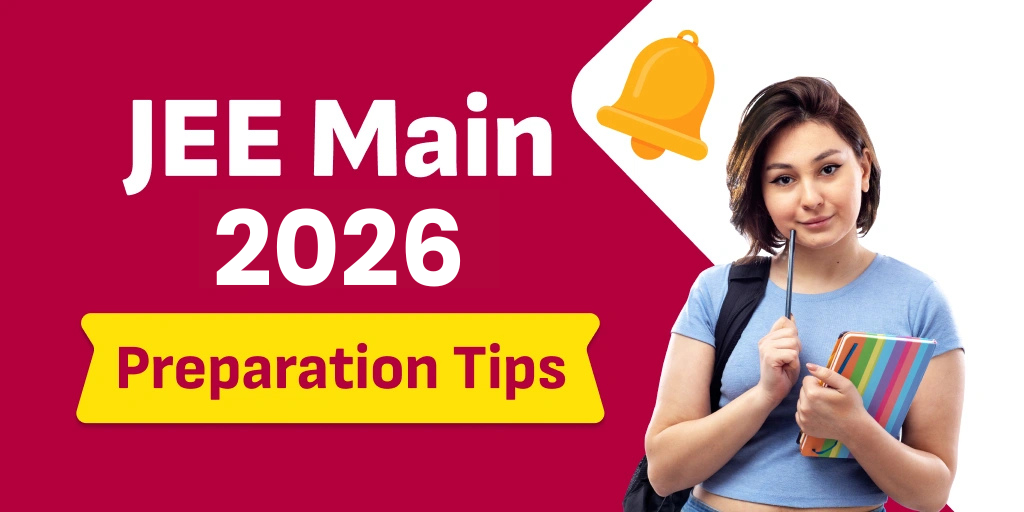
Preparing for JEE Main 2026 exam? Then a correct strategy and time management is very important. In this article, we will give you important tips related to JEE Main 2026 preparation, information about books, subject wise weightage and preparation suggestions along with board exams.
How to prepare for JEE Main 2026?
1. Do time management smartly
Make an accurate timetable and set topic wise targets for each day. Cover difficult topics first and keep time for revision every week.
2. Understand the syllabus well
It is important to know the complete syllabus and exam pattern of JEE Main 2026. Give priority to high-weightage topics and make your strategy accordingly.
3. Choose the right books
Start with NCERT books. Only then read other reference books like the books given below. Reading too many books can increase confusion.
Essential Books for JEE Main 2026
Mathematics:
- NCERT Maths (Class 11 and 12)
- S.L. Loney – Trigonometry
- Hall & Knight – Higher Algebra
Physics:
- H.C. Verma – Concepts of Physics
- I.E. Irodov – Problems in General Physics
Chemistry:
- Morrison & Boyd – Organic Chemistry
- J.D. Lee – Inorganic Chemistry
- P. Bahadur – Numerical Chemistry
JEE Main 2026 Topic-Wise Weightage (Expected)
| Subject | High-Weightage Topics | Approx. Weightage (%) |
|---|---|---|
| Physics | Current Electricity, EMI | 10.67%, 8.33% |
| Chemistry | Organic Chemistry, Electrochemistry | 10.67%, 8%, 7% |
| Maths | Coordinate Geometry, Calculus | 14.67%, 11.67% |
Make a habit of Mock Tests and revision
- Take one full-syllabus mock test every week.
- Practice from NTA's test practice website.
- Make short notes and flashcards so that you can revise quickly at the last moment.
Focus on Concept Clarity
- Just memorizing will not help, make sure you understand every topic. This will make it easier to solve any type of question.
How to prepare for Class 12 and JEE together?
- Cover the common topics in both board exams and JEE first.
- Complete the syllabus of both 11th and 12th as JEE is based on both.
Create a daily timetable with topic-wise goals. Prioritize difficult subjects first, include regular revision slots, and stick to your schedule to maintain consistency and avoid last-minute stress.
It is very important. Understanding the official syllabus and exam pattern helps you focus only on relevant topics, allocate time wisely, and plan your preparation based on topic weightage.
Start with NCERT textbooks, then refer to a limited number of trusted reference books for deeper understanding. Avoid using too many books to prevent confusion and overlap.
Mock tests help improve speed, accuracy, and time management. They simulate the real exam environment, highlight your weak areas, and build exam-day confidence. One full mock test per week is recommended.
Concept clarity enables you to solve a wide variety of questions, including tricky or application-based ones. Rote learning is not enough — you must understand the logic behind every concept.
Use short notes, flashcards, and weekly revisions. Regularly revisit important formulas and tricky concepts. Revising consistently ensures better retention and reduces exam-time anxiety.







 Profile
Profile Signout
Signout









 Quiz
Quiz
 Get latest Exam Updates
Get latest Exam Updates 










